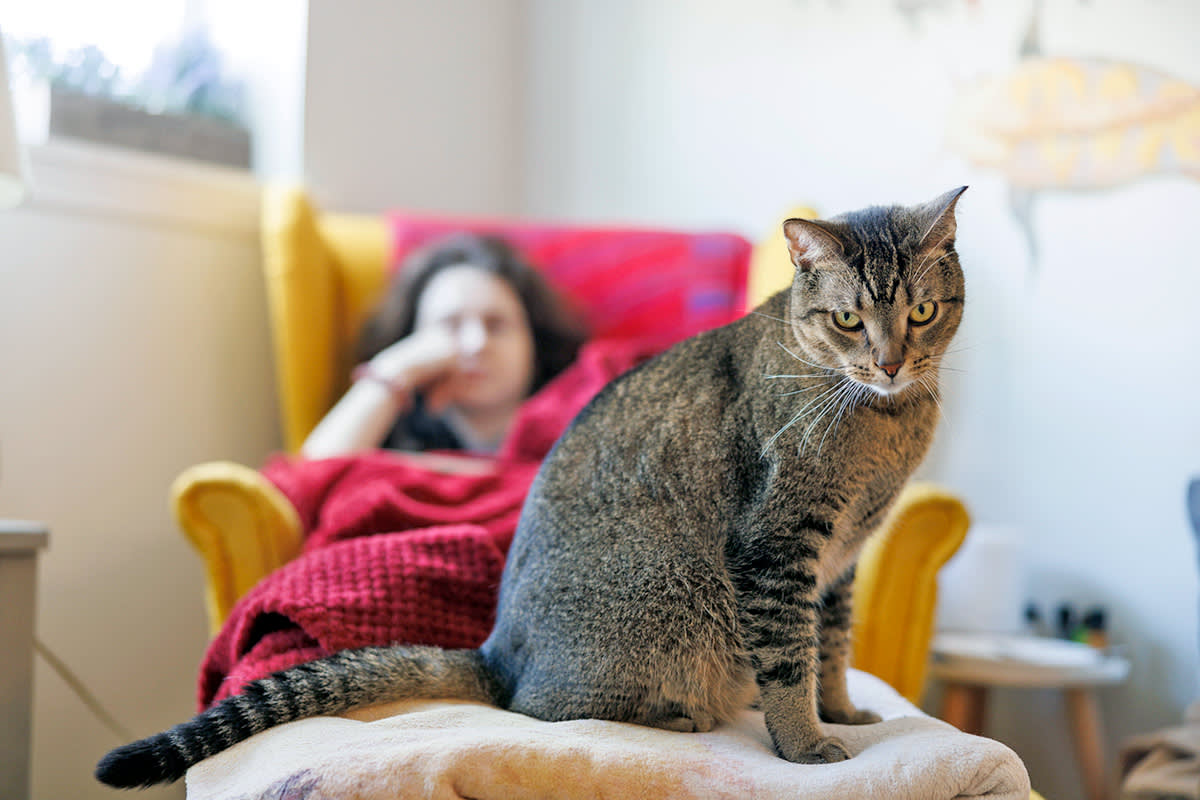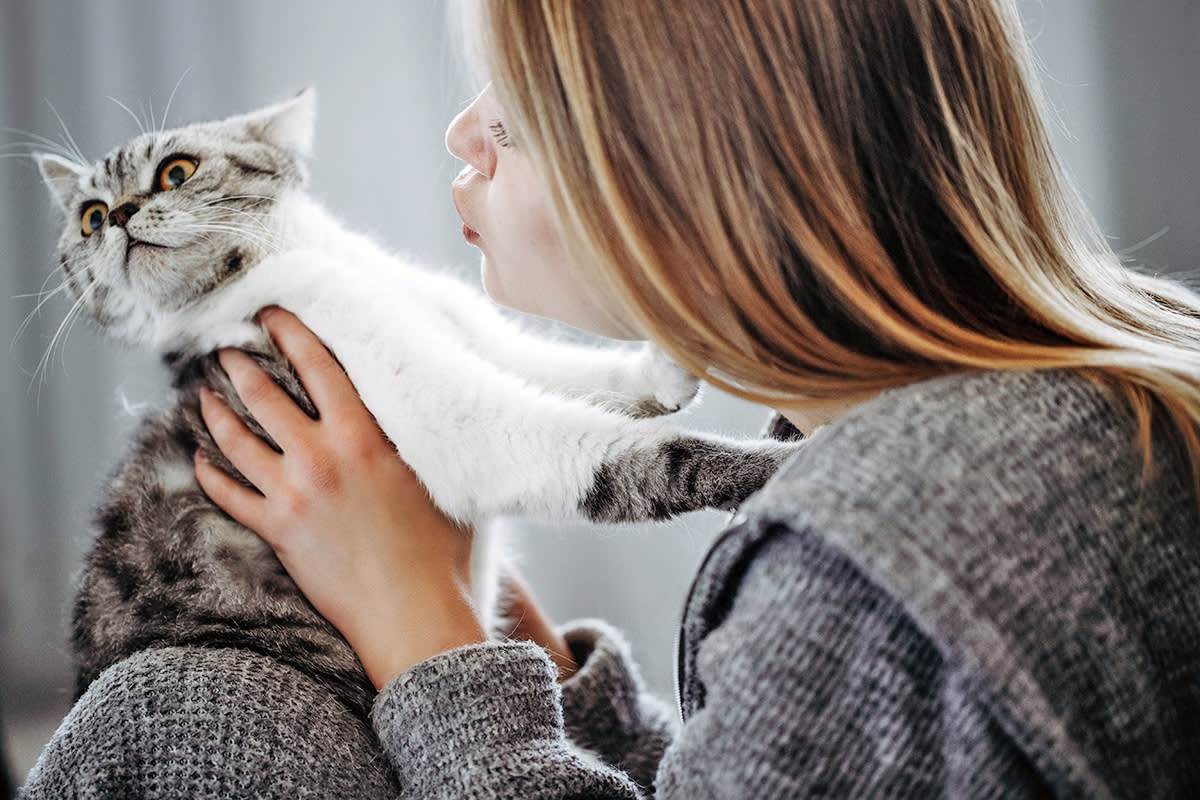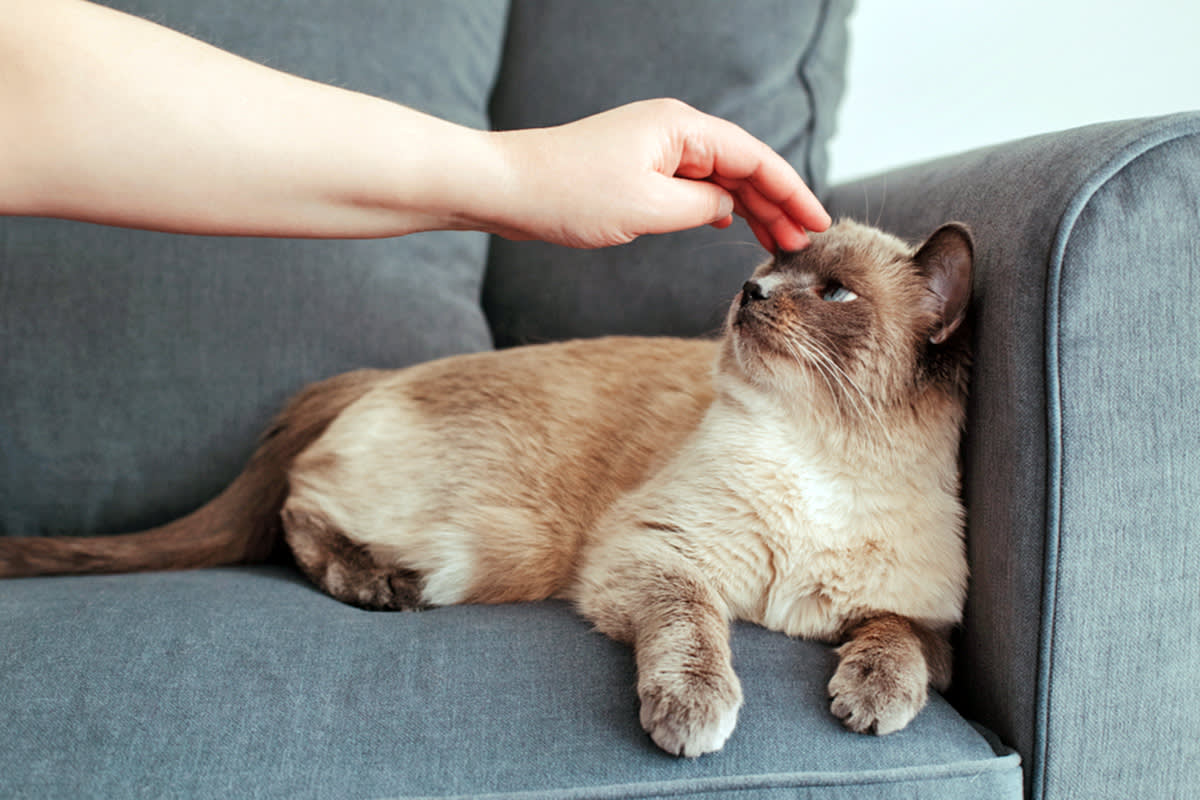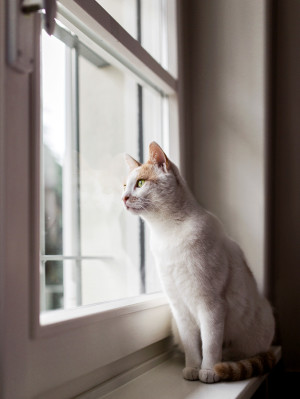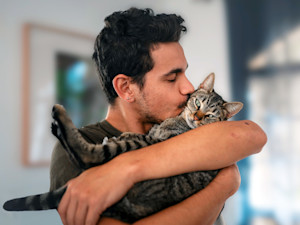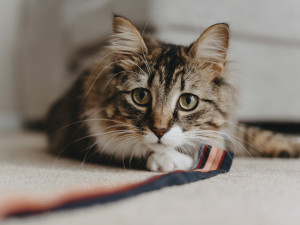Do Cats Hold Grudges? They Sure Seem To
Here’s how you can get back in their good graces.

Share Article
Do you ever feel like your cat is mad at you? Not little mad. Not gurl-you-were-five-minutes-late-with-my-dinner mad. But big mad. The kind of mad that goes on and on with no end in sight. The kind of mad that leads them to glare at you from across the room and run away every time you try to touch them. Or maybe they’re not mad at you but at your partner. Maybe they are harboring resentment at your new kid or another animal in the house. After whatever (or whoever) sets them off, that initial upset crystalizes and turns into a grudge that you are unable to understand, let alone address.
There’s good news: Cats do not actually hold grudges. “Grudges require complex, abstract thinking and the capacity for long-term moral judgment, [while] cats operate on a more immediate, instinctual level,” says Mieshelle Nagelschneider, a cat behaviorist at The Cat Behavior Clinicopens in new tab. “Their reactions are shaped by survival instincts, associative memory, and emotional responses. If a cat appears upset, it is likely reacting to a specific event or stimulus, rather than harboring resentment.”
Because cats do not hold grudges, they are not vengeful, either. “They lack the cognitive framework for revenge,” Nageischneider adds. Just because an action our cat takes upsets us, doesn’t mean that was their intent. Our cats rely on us for their survival, and they know it. They are not trying to upset us. They are just reacting in the moment to whatever is happening around them.
If anything, our cats are trying to communicate with us using the very limited tools at their disposal. For instance, when I stopped cleaning my cat Pumpkin’s litter box in an attempt to coax him into using a Litter Robot, he peed on my couch. He wasn’t taking revenge on me for neglecting him; he was most likely confused about why I’d stopped cleaning his box and desperate for the situation to change.

Of course, it’s impossible for me to know for sure what he was thinking. But when I came home and saw him standing next to the pee spot, I realized that the situation I had put him in had become untenable. Without getting mad at him, I took action to change it.
Unfortunately, having peed on the couch once, Pumpkin returned to pee on it again, even after his original litter box was restored. But rather than getting mad or assuming he was trying to hurt me because of what I’d done, I replaced the couch with something new. I chose leather over fabric this time, and Pumpkin never peed on any furniture ever again.
Getting back on your cat’s good side
If your cat is upset or it seems like they are holding a grudge, there are steps you can take to win them back. “Offer enticing rewards or activities, such as a favorite toy or treat, and ensure interactions are on the cat’s terms,” Nageischneider says. “Mutual grooming is a common way cats reconcile among themselves; humans can emulate this by gently petting or brushing them, respecting their boundaries.”
How long it will take to win them over depends on the severity of the event and your cat’s individual temperament. “Physiologically, stress hormones, like cortisol, can take 24 to 48 hours to normalize after a frightening event,’” Nageischneider says. “Behaviorally, cats may avoid the source of their discomfort for hours or days.”
If your cat’s bad mood lasts longer than that, it’s probably because the source of their discomfort is persistent. If, for instance, your partner steps on your cat’s tail and after that, your cat seems to have some sort of grudge against them, well that’s highly unlikely. While stepping on their tail could certainly be distressing enough for your cat to keep their distance for a day or two, it shouldn’t be enough to turn them off that person entirely. More likely, that person is doing other things to upset your kitty: sitting in their preferred spot on the couch, making a lot of noise, moving too quickly, yelling at or being physically rough with them. If your cat feels unsafe around this person, they will keep their distance. It’s up to you to figure out what is upsetting them and make the necessary changes so they can feel safe again.
Depending on your cat’s age, it is also possible that what you interpret as them holding a grudge is actually just a personality change, which happens in many cats as they grow into maturity (two to four years old). Many cats are sweeties when they are extremely young kittens, but that may not be the case as they get older, and their personalities settle. This is not to say that you might not be able to coax them back into your loving embrace, but their new aloofness might just be part of who they really are. (In case anyone reading this has a cat who literally can’t cuddle you enough, please know I definitely do not to support the stereotype that all cats are distant weirdos.)
Whatever you do, don’t try to force closeness or overwhelm your cat with too much attention. “Actions like picking them up against their will, following them, or repeatedly offering treats may be interpreted as intrusive,” Nageischneider says. “Instead, give the cat space to recalibrate and approach you when they feel safe. Cats thrive on autonomy; respecting their independence is the first step toward rebuilding trust.”
Once your cat is no longer upset, focus on reinforcing feelings of security by maintaining consistent routines and providing enriching activities. Doing this will remind your cat that they enjoy being around you and feel safe in your presence.
When to seek professional help
Every cat is different, and some are just less demonstrably affectionate than others. This isn’t a problem in and of itself, but if your cat was formerly affectionate and now seems distant or aggressive, something else could be going on.
If you can’t determine what that is for yourself, seek professional help. Cat behaviorists are trained to see things you might miss. And they can help you figure out exactly why your cat is upset and how best to help them. Cats do not hold grudges. They live in the now and want to feel safe more than anything. You can give them that. And if you can’t do it on your own, there are lots of people ready and willing to help.

Charles Manning
Charles Manning is an actor and writer based in New York City. In his free time he likes to cook, go swimming at the public pool, volunteer at the LGBTQ senior center, and foster senior and special-needs cats. His work has previously appeared in Cosmopolitan, Elle, Marie Claire, Harper’s Bazaar, Seventeen, and Nylon.
Related articles
Do Cats Like to Be Touched? These Are the Places They Prefer to Be Pet
And the surprising way to get your kitty to be more affectionate.
![White Cat And His Reflection On Window While He Stares At The Outside.]()
Your Cat Wants to Go Outside More Than Anything — Should You Let Them?
The pros and cons of letting your cat explore the neighborhood (and beyond).
![illustration of a dog in a pool with a pink hat and pink shoes]()
Anthropomorphizing Your Pets Can Actually Benefit Them—and You
If your friends make fun of you for treating your dog like a human being, send them this.
Do Dogs and Cats Care What They Look Like?
They do seem to act different after a trip to the groomer, right?
![Man holding his cat.]()
Your Cat’s Anxiety—Explained
Because they’re probably not going to tell you why they just scratched the heck out of the couch.
![A cute cat laying on the ground with wide eyes]()
Why Do Cats Slow Blink?
Here’s what your cat’s favorite move means.
